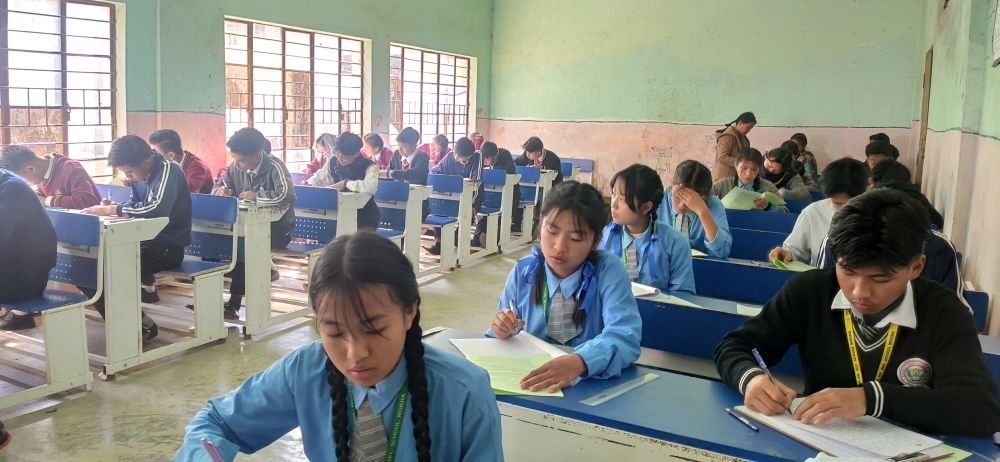
Nagaland University organises capacity building programme
Morung Express News
Meriema | May 8
“Teachers have one of the most demanding vocations in the world and in order to play their roles and fulfill their responsibilities with dedication, they need continuous education and training, they require motivation and regular mental, emotional and spiritual rejuvenation,” stated Prof. Buno Liegise during the inauguration of the two week capacity building programme for young faculty in social sciences at Nagaland University, Meriema campus on May 8.
Sponsored by the ICSSR, New Delhi, the programme is organised by the Department of Education and Department of Teacher Education where 30 academicians from 12 states in 12 disciplines are participating.
The capacity building programme will focus on developing the research capabilities among young faculty members in social sciences and to bring out completed research work into publishable material of high quality in the form of journals and books.
“Research development forms a very significant part of higher education. It may be said that innovation is derived from the universities and this need must be recognized,” asserted Prof. Liegise.
With the focus of the programme on the development of research and investigative skills, Prof. Buno Liegise reminded the participants that there is no end to learning research methods and procedure, as each year, new thoughts, ideas and concepts keeps emerging.
“As years pass by, new thinking emerges; new researches and perspectives pop up. New ways of investigation and assessments show up even as perspectives/theories advance and life itself changes in so many ways,” stated Liegise advising the teachers to hone their investigative skills and to engage in research activities not only for personal competence but for the sake of the society’s development.
While the need for research is ever growing with a wide range of topics to be researched, Prof. Liegise also warned the selection of the problem which must be based on its importance and usefulness where sources and competence must be kept in mind.
“Today we are living in a world of excellence; therefore we cannot afford to be mediocre. And in order to excel, we know that in our academic field a very important component is research,” said Prof. Buno Zetsuvi while delivering the welcome address, stressing on the importance of capacity building to achieve excellence.
Chief Guest Prof. R C Gupta, Pro Vice Chancellor, Kohima Campus, Nagaland University also stressed on the importance of upgrading one’s knowledge and skills. According to the Pro Vice Chancellor, capacity building programs are essential for competency and self efficiency, so that academicians are on par with others.
The programme modules should help teachers develop their capacity in such a way that they can handle challenges of their roles innovatively.
Delving into the review of literature, Prof. Liegise reminded the participants that the review of quality literature is more important than quantity. “Never succumb to the temptation of presenting literature as a long list of literature abstract in chronological way. Literature review should provide the knowledge base of the research study,” stated Liegise. Another important advisory to the young faculty was to give sufficient time to the analysis and interpretation of the data. Liegise pointed out the dangers of failure to analyse and discuss findings of study which leads to underutilization of data and poor reporting work.
Discussing further on the recent removal of 4305 journals by the University Grant Commission from its approved list, Liegise stated, “One lesson that we can take from it is maybe the qualities of our research papers are not matching up with the standards of the UGC.”
The programme will focus in the areas of research activity, plagiarism and research ethic, leadership and good governance, recent archaeology research in Nagaland, historical research, hypotheses testing, meanings and aspects in social science research.


.jpg)
.jpg)
.jpg)
